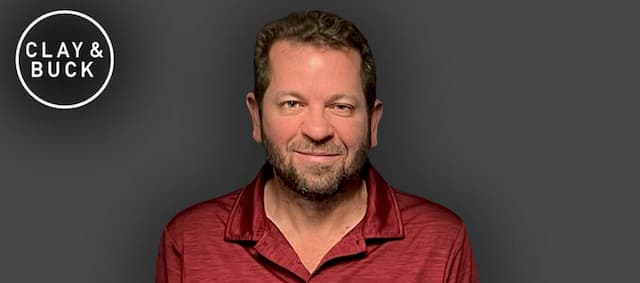Starbucks Closes Stores After Democrat Policies Made Cities Unsafe
BUCK: We told you a lot here about the deterioration in safety, the crime wave that has been washing over America for a couple years now, and I do think it’s important everybody knows that it’s not just cities. That’s just where you have the biggest numbers. And so, the data more clearly reflects this, but even in towns and rural areas across America have seen real deteriorations in safety.
A lot more crime going on. And one of the major reasons, perhaps the most major reason we can think of, we can see, is the change in the way our criminal justice system operates due to a Democrat idea that we’re just too tough on criminals, we lock up too many criminals, enforce too many laws, let’s just stop doing that. That’s just the short version of it. We often talk to you about what that does for the homicide rate in places like Philadelphia, for example, which had its highest ever year for murders, ever, last year.
In Chicago, where the murder rate is such that you could have dozens of people shot on any given weekend and that’s just now become the grim status quo. But in places like San Francisco and Los Angeles you also have a lot of day-to-day crime going on, lower level but still the kind of thing that makes people want to move, the kind of thing that makes people feel unsafe. Starbucks, for example, is planning to close 16 locations across a number of cities, and they are specifically citing safety concerns.
The stores are in Seattle — the original home of Starbucks — Los Angeles, Philadelphia, Washington, D.C., and Portland. These are all extreme blue Democrat enclaves. Well, what kind of stuff goes on in Starbucks? There’s a lot of homeless people who will essentially just set up in Starbucks. The bathrooms and the seating areas often turn into refuse piles of one kind or another. It’s a total mess.
And, Clay, this just goes to what we’ve been seeing playing out, which is that Starbucks effectively became afraid to even demand that somebody pay, right? If you didn’t pay money, you weren’t allowed to sit in a Starbucks. If you didn’t pay money and wanted to sit in Starbucks, that had to be a thing that was allowed, right? They had all these debates going back now for a few years.
And now they’ve turned Starbucks into the place where you can’t sit down safely and not think that there’s somebody who is insane and in desperate need of help with hygiene, mental and physical, next to you. Democrats destroy places like cities, and they do it from the top down, they do it all over.
CLAY: Yeah. And there isn’t really any defense. You mentioned the Starbucks. Every single one of them that is closing is in a blue city. And most of them are in blue states. And this builds, Buck, even more… Remember when we were talking about, I believe it was in San Francisco, which had to shut down all of the Walgreens out there? They had to shut down the Walgreens because there was so much theft. And what’s unfortunate about many of these places that are being forced to shut down is it just pulls in more jobs out of inner-city areas where there need to be jobs that people can make a live working in.
 BUCK: Can I just…? I want to remind everybody, Clay. This is where I was going. I was trying to jog my own memory as you’re talking about it. It was back in 2018 when Starbucks asked two men to leave who wouldn’t purchase anything.
BUCK: Can I just…? I want to remind everybody, Clay. This is where I was going. I was trying to jog my own memory as you’re talking about it. It was back in 2018 when Starbucks asked two men to leave who wouldn’t purchase anything.
CLAY: Right.
BUCK: They had not purchased anything, and this caused a huge national uproar. The two men were black, and they were asked to leave Starbucks because they weren’t actually patrons. They just wanted to sit there and use the bathrooms and sit there where customers would normally sit. In response to this, Starbucks changed its policy so that it no longer required any purchase. You can sit in a Starbucks, you can sleep in a Starbucks, use the bathroom. You can treat Starbucks as your own personal single-room occupancy hotel as a function of corporate policy. Do people think that was a really good idea?
CLAY: No. And it’s the problem in general with social media, which often leads companies in particular to respond to viral incidents that are relatively uncommon to adjust their policies for everyone. And using the bathrooms, for instance, in Starbucks — remember we were talking about it off-air, Ali, of our producers, said there are Starbucks in her neighborhood in New York City that she won’t go to anymore because they have become squatting grounds now for homeless people as a result of this policy change.
So, this is everything that’s wrong with social media where you implement policies that have existed for a long time and then as a result of changing those policies everything gets worse, which is why you had the original policy, because you had tons of data to support the original policy, and then you alter it. And here’s the real question that I think begs an answer, Buck. At what point do all of the people living in these communities that are increasingly becoming more and more deadly, more and more dangerous, recognize that the voting patterns that have led them to this position are the reason why things keep getting worse for them?
Trump said in 2016 in the campaign, he tried to appeal to inner city voters by saying, “Hey,” and I think this is a really good appeal, “you’ve been voting Democrat now for multiple generations. Are your lives better now than we were before you started becoming a monolithic Democrat voter?” I think it’s such an interesting question because if you look at the data, when the Great Society with Lyndon Johnson took root in 1968, late 1960s, things for many black Americans have actually gotten worse.
The number of kids being born out of wedlock has skyrocketed. The number of kids that are growing up and owning their own businesses and all these different aspects. If you look, black Americans as the civil rights era crested and they got full protection and rights under the Constitution were skyrocketing in their status in the country. And then in the late sixties, suddenly everything changed.
 So, if you’re looking around right now, Buck, in the wake of the BLM protests and you are just trying to be rational and you’re looking at your community, you’re looking at the rates of crime, is there any way that you can defend Democrat policies, I mean just on a rational basis? Not historic basis, not anything else, just looking at what your day-to-day life is? Democrats have control of Congress — they have control of the Senate, the House — the White House, and virtually every — as you said yesterday — big city in America with the possible exception of Fort Worth. And everyone’s lives in those big cities, particularly inner cities residents, is getting worse.
So, if you’re looking around right now, Buck, in the wake of the BLM protests and you are just trying to be rational and you’re looking at your community, you’re looking at the rates of crime, is there any way that you can defend Democrat policies, I mean just on a rational basis? Not historic basis, not anything else, just looking at what your day-to-day life is? Democrats have control of Congress — they have control of the Senate, the House — the White House, and virtually every — as you said yesterday — big city in America with the possible exception of Fort Worth. And everyone’s lives in those big cities, particularly inner cities residents, is getting worse.
BUCK: They have no compelling counterargument to the things.
CLAY: What is the argument now?
BUCK: If I thought they did, we would tell you because it’s always important — I don’t want to misrepresent the argument of the other side when they have a good argument because I want everyone to always be prepared for whatever might come their way if they engage in debate on this, and also, I want us to be honest about, you know, the material and the challenges and the concepts we’re dealing with. So, we’re not doing a big straw man session here where we’re pretending that something isn’t as clear as it is.
Democrats have ruined safety and day-to-day living in a lot of cities. And I mentioned this I think, Clay, last week where you have in New York, you’ll have these motorcycle gangs, including ATVs and they’ll shut down the street, no other drivers are allowed to drive, and they’ll get into fights with people if they try to drive their cars legally on the street because they want to create essentially a drag racing strip where only they can drive. It’s outrageous. It’s illegal.
And it’s amazing. I’m a New Yorker, and I complain about this ’cause it is illegal. And the Democrat blue checks will say, ‘What’s the problem? Why do you have such an issue with this?” They’re always making excuses for violations of law, for vagrancy, for open air drug abuse, for even violent crime. “It’s not that person’s fault.” What is wrong with them? I think their virtual signaling has gotten to a point now where they’re happy to seem generous at the expense of others, right?
They’re happy to seem like they’re sympathetic, as long as they’re not the ones who are being attacked. You just had a man who was assaulted. Now, I know that the Starbucks thing, for example — this all ties together — that was a corporate policy, was a corporate policy that changed because of allegations of racism that were not actually about racism but the left and the woke terrify everybody.
But it’s also – and I mean this – the completely insane vagrants who now go into places like New York City, near where I live, and destroy people’s ability to sit and have a cup of coffee in some peace and tranquility, and the left says, “Oh, what’s the problem?” Portland just had a guy — I think he was 88 years old, Clay — assaulted for absolutely no reason. Some lunatic on the street runs up to him, beats him to death with his bare hands.
 The guy has been in a coma and he just died. I just saw this news story today. This was in Portland, an 88-year-old man attacked by a 29-year-old, okay? The 29-year-old who they are giving us very few details on, but the details that we do have are that he has been arrested dozens of times. He’s been arrested for being a felon in possession of a firearm, for violent assault, for breaking — you know, for name a charge. Why is this person still out on the streets, Clay?
The guy has been in a coma and he just died. I just saw this news story today. This was in Portland, an 88-year-old man attacked by a 29-year-old, okay? The 29-year-old who they are giving us very few details on, but the details that we do have are that he has been arrested dozens of times. He’s been arrested for being a felon in possession of a firearm, for violent assault, for breaking — you know, for name a charge. Why is this person still out on the streets, Clay?
Why are they wandering around? They haven’t had some long sentence. You know, you look at things. If you commit white-collar mail fraud, you know, if you commit wire fraud, you know, white-collar crime, you could face 20 years in prison, in federal prison. Now, people don’t usually get that, but that’s what the statute says. If you beat someone senseless on the streets, you should spend years in prison. I don’t understand — this is so hard for Democrats — and they don’t do it, and then old people who are defenseless get beaten to death waiting for a bus as just happened in Portland.
CLAY: No, and again, I would just come back to the question — and you raised it and said it: There isn’t a good argument. So, for people out there who are new listeners to us, maybe you’re watching on YouTube, maybe you are listening on the podcast and you are sitting around and you’re saying, “What results do Democrats have to share here?” It is worthy of debate and discussion.





